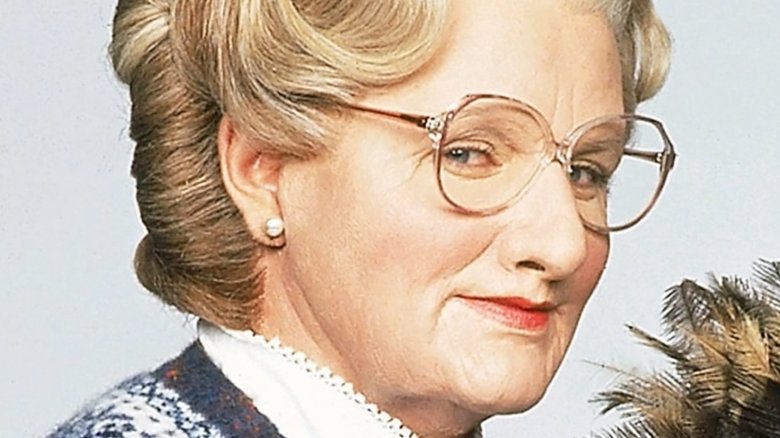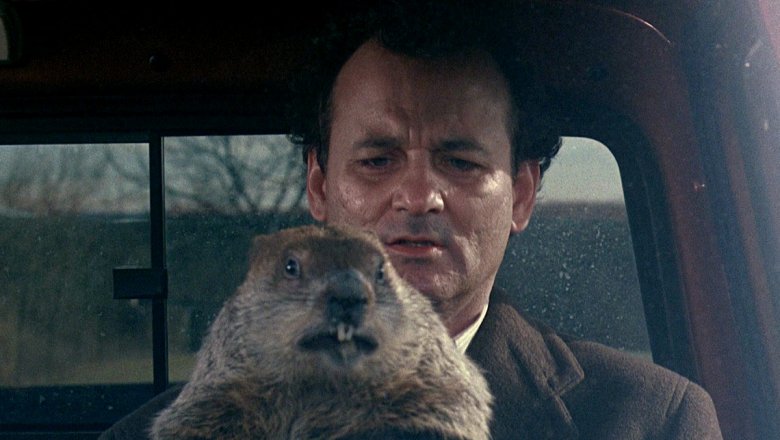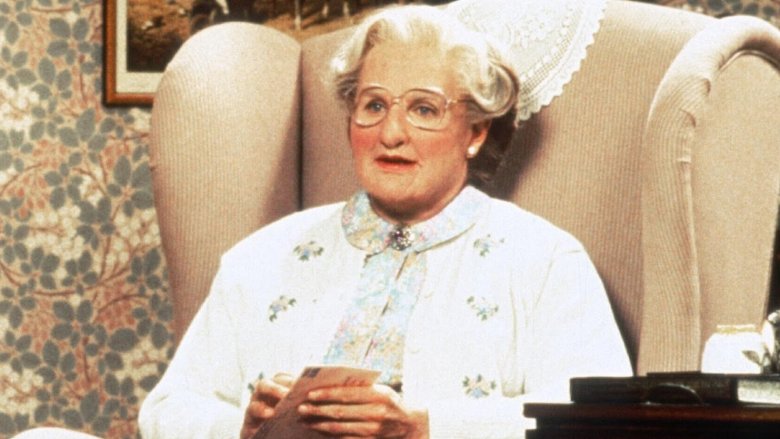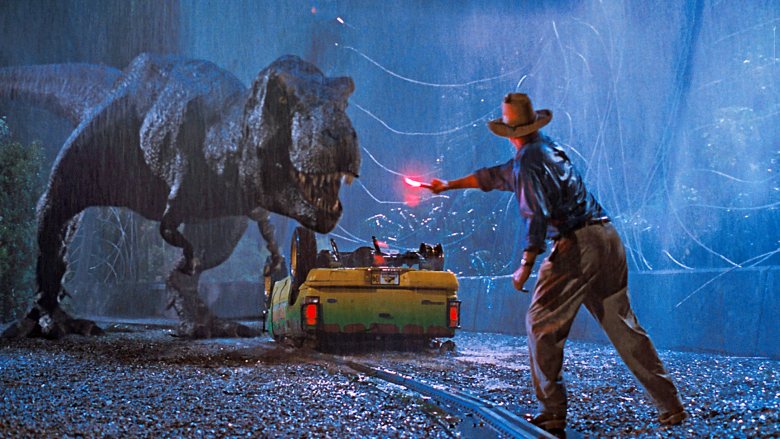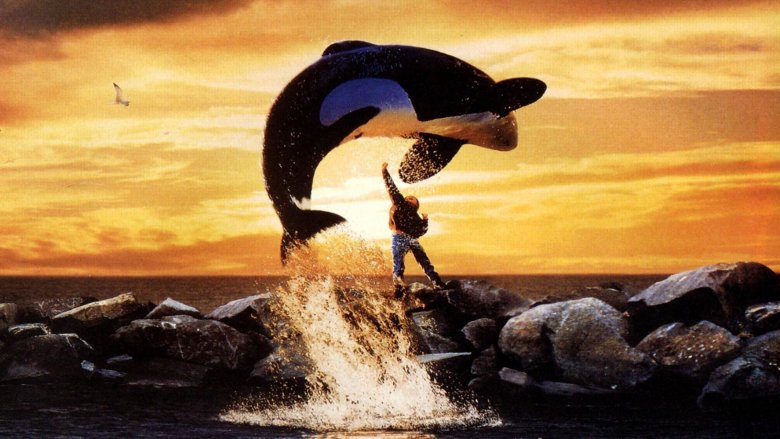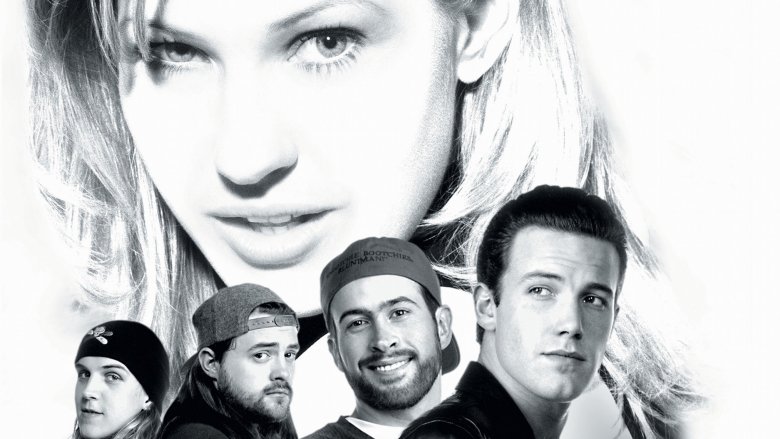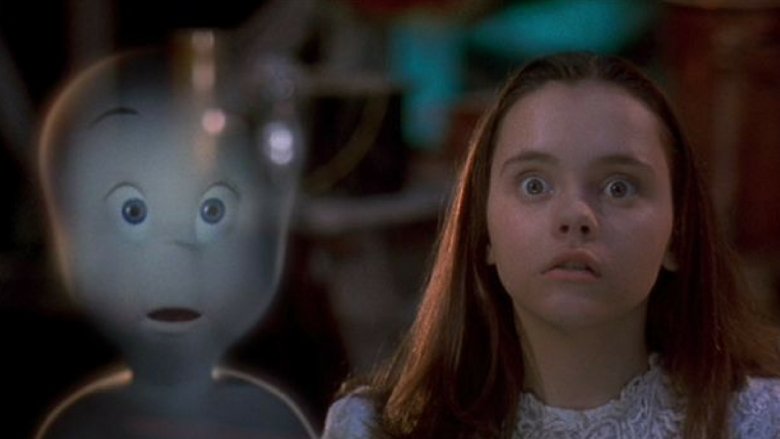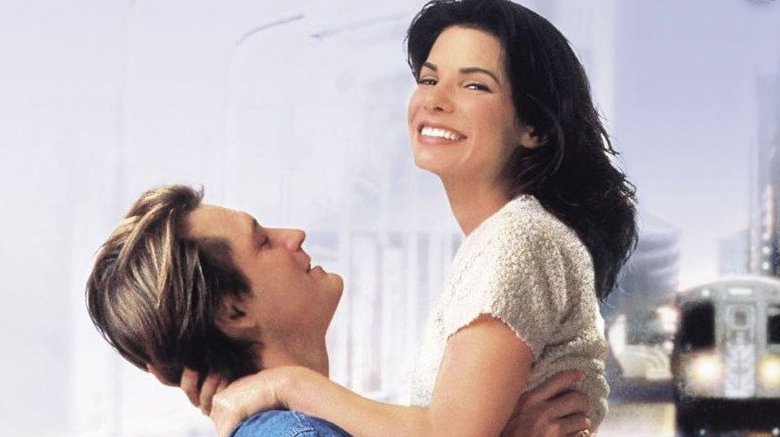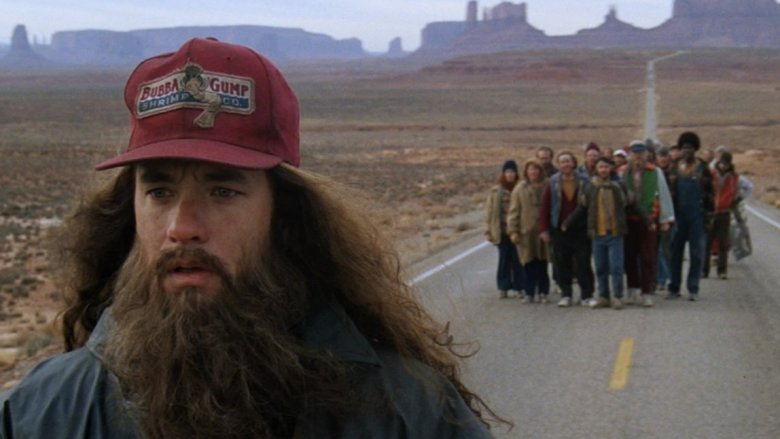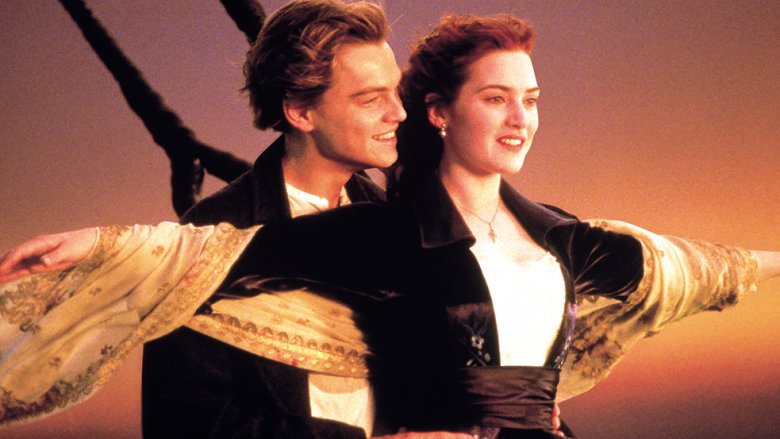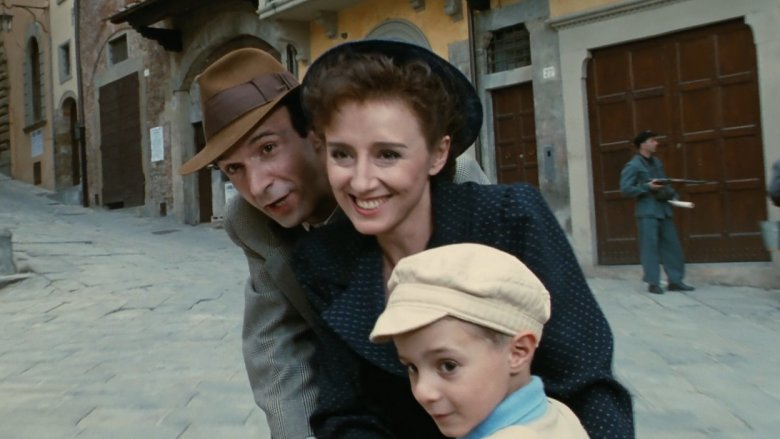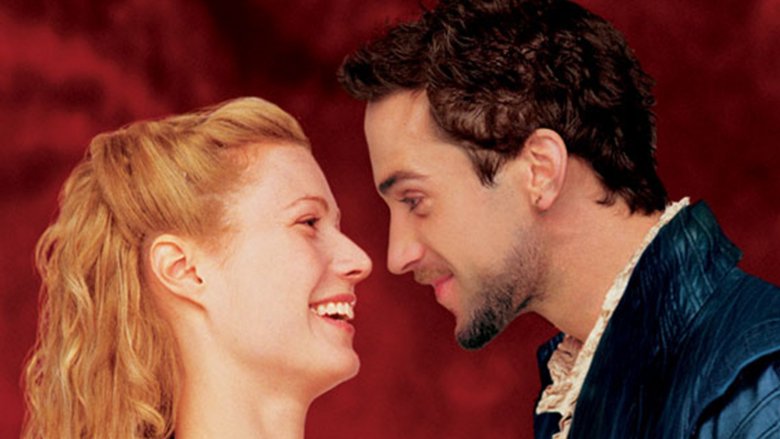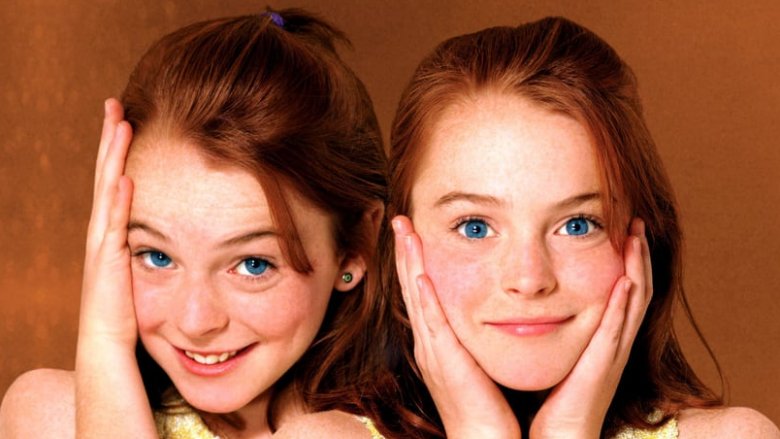The One Messed Up Thing About These '90s Movies Nobody Talks About
The '90s were an enchanted time for movies. The "New Hollywood" that had revolutionized filmmaking was now the old Hollywood. Directors like Steven Spielberg and Martin Scorsese were no longer the bright young rebels on the scene, having become the standards to which filmmakers were held. Blockbusters were the new normal. Ideas for motion pictures had to be big and original. The presentation had to be astounding. It was an era of boldness, creativity, and hitherto unheard-of panache.
But in these dizzying days of bombast, things occasionally got weird. The dawn of the Digital Age was characterized by rapidly shifting ideas about everything from technology to gender roles to family values, and entertainment couldn't always keep up. Looking back with the benefit of hindsight and a more woke 21st century perspective, you might notice a lot of strange little details that slipped past you at the time... and some of them are pretty messed up.
The romantic manipulation of Groundhog Day
There are shockingly few universal scientific laws, truths so immutable as to be considered consistent throughout all of existence. Energy and matter cannot be created or destroyed. An object in motion tends to stay in motion. Bill Murray can do no wrong.
By way of example, Groundhog Day would've been a steaming mess with another actor in the lead role, but Murray's performance tipped it over the edge, moving the film from pretty good comedy to genre-defining. If someone handed you a nickel for every time a showbiz elevator pitch started with "like Groundhog Day, but with..." you'd start to feel like you were living in some sort of recursive time loop where everything keeps repeating itself, and it's a shame there isn't a pop culture shorthand way of saying that.
And all of that makes it a bummer that the movie's central love story is borderline cringe-inducing to watch in hindsight. If you haven't seen it in a while, try revisiting Groundhog Day, the story of a man who uses immortality to warp a woman's perspective of him until he's finally someone she won't refuse to sleep with. The moral of Groundhog Day is basically "no means try again later."
Mrs Doubtfire's deranged dad
Mrs. Doubtfire gets a lot of love for plenty of good reasons. To be clear, yes, Robin Williams is still a patron saint of comedy and yes, the movie managed to convey some messages about parental divorce that lots of kids probably very badly needed: you're not alone, the world isn't over, you're still very much loved.
Also, the movie was bananas and should've ended with the dad in jail.
Let's break down the plot of Mrs. Doubtfire. It's the story of an upper class suburban couple. The mom, who is hardworking and straightfaced, seems to pull most of the weight around the house. She works grueling hours and provides for her children, then comes home, feeds the kids, cleans up, and tries to maintain disciplinary standards. Her husband, meanwhile, can't hold down a job and undercuts any cause-and-effect punishments doled out by the mom, eschewing regulation in favor of petting zoos and House of Pain dance parties.
They divorce. The judge, super reasonably, tells the dad that he needs to get a job and a place to live if he wants shared custody of his kids. The dad tries for about a minute before giving up and infiltrating his ex wife's home disguised as a nanny. The only thing missing is a scene where a still-disguised Robin Williams strokes a sleeping Sally Field's hair and whispers, "I am the mother now."
Jurassic Park spared no expense
The best movie in the Jurassic Park franchise is still the original, which also happens to be the one with the least amount of time spent focused on CGI dinosaurs. There's a lesson to be learned from Antoine de Saint-Exupery's thoughts on achieving perfection through simplicity, but to paraphrase Chris Pratt in Jurassic World: Fallen Kingdom, "let's make my best friend the velociraptor fight a laser monster in a lightning storm."
Maybe the Jurassic series was always doomed to get too overblown and needlessly complicated for its own good, since that seems to be what the characters in the franchise have been aspiring to for almost three decades. The biggest flaw in the movie is that the people in charge of the park always go for a twenty dollar solution when a five-cent fix would've done the trick. By way of example, when they needed to ensure that all of the animals in the park would be sterile, they bred them all to be females with frog DNA instead of hiring a Humane Society intern to neuter them like pit bulls for minimum wage and college credit. Instead of counting on electric fences that ran on Linux on an island prone to hurricanes (and, as it implausibly later turns out, volcanoes) they could've built fences out of some sort of metal that animals can't chew through, an engineering feat that Petco manages every day.
Freeing Willy wasn't a great plan
If Free Willy taught us anything, it was that orca whales are magical creatures that love kids and get sad when you put them in swimming pools. If Blackfish added a caveat to that, it was that we never should've taken them out of the ocean in the first place.
The thing is, orcas are wildly complex creatures with incredible brains and a well-developed social structure. Pulling one from the wild, especially at the young age that amusement parks tend to prefer, sort of wrecks them for reintroduction to the wild. Imagine if the T-Rex from Jurassic Park, instead of Usain Bolting after some tasty Goldblum nuggets, had just stood in the middle of the road doing half-hearted backflips and waiting for another goat on a string to pop out of the ground. That's the life that was waiting for Willy in the wild.
For proof, you can read about what happened when scientists released Keiko, the whale from the movie, into the ocean back in 2002. Spoiler alert: it didn't leave a lot of room for sequels.
Chasing Amy's mixed signals about sexuality
In 1997, Kevin Smith was still Hollywood's new kid in class, the guy who showed up to school in a hockey jersey and somehow managed to be cooler than everyone else without ever really looking like he was trying. He'd only released two movies at this point: Mallrats, the story of Yondu from Guardians of the Galaxy smelling Jason Lee's pant swamp; and Clerks, the story of how a generation of film school dropouts maxed out their credit cards because that's how Kevin Smith got famous.
So it was a little shocking when Smith's third movie, Chasing Amy, tackled complex psychosexual issues. Perhaps unsurprisingly, it falls a little short of the nuance required for the subject matter. At its core, it's about love, jealousy, social expectations, bigotry, and the fact that romantic affection doesn't come with a user's manual. At the surface, though, the moral of the story is "you're not a lesbian, you just haven't hung out with Ben Affleck enough."
Casper's a creepy kid
Have you ever woken up after a barely-funded night of bottom-shelf alcohol and off-brand ZzzQuil, looked through your tweets and texts from the previous evening, and realized that maybe you're less okay than you thought you were? That's kind of what it's like when you remember that you enjoyed Casper growing up.
Look, there are plenty of obvious, weird-as-hell things about this children's movie. It's about a dead kid, for starters, and all of the crazy fun superpowers he got just by dying. You hear that, young'uns? Maybe you can't find a radioactive spider with the gumption to bite you, but you can sure as shootin' catch pneumonia.
But those are pot shots. The real freak show in this story of a family of actual ghosts lies not with the specters, but, as is so often the case, with Bill Pullman. By the end of the movie, middle school-age Christina Ricci effectively has a live-in boyfriend who can move through walls. Parenting tip: if Bill Pullman doesn't pick up and move to a different city in the middle of the night, he's dumber than he was when he didn't immediately call the CDC and tell them that his basement was housing the cure for death.
The comatose logic of While You Were Sleeping
The merits of conning a family into thinking that you're engaged to their comatose son are something we could argue about all day, and if there's any justice, scholars will be doing just that for decades to come. But that's not the biggest problem with this movie.
The fact that Sandra Bullock spends the whole film telling her friends and coworkers about her sociopathic grift and not one of them sends so much as a note to the family she's taking for a ride? Shameful, yes, and irresponsible to the point of doing 90 miles an hour past enabling and gunning the engine on their way to criminal conspiracy. Yet, this also is not what's wrong with While You Were Sleeping.
The very concept that Bill Pullman would enter a relationship, the bedrock of which was shattered by rich veins of deception, subterfuge, and an adult woman's willingness to use the words "doggy poopy?" Difficult to fathom, to be sure, but still not the picture's Achilles' heel.
The real problem here is that, no matter how incapable of empathy, anybody who looks like Sandra Bullock is absolutely not going to be dateless on New Years.
Forrest Gump's doomed romance
Any movie with a catchphrase so easy and ubiquitous that it becomes the go-to punchline for boozy family members and uninspired athletic spectators should be hunted down like the most dangerous game, but that's not the reason Robert Zemeckis' heartstring twanger should run, Forrest, run and never come back.
For all of the legions of love Forrest Gump got back when it was released in 1994, it's a difficult flick to watch with fresh eyes. The love story that we're presented with hinges on a woman seducing an intellectually disabled man, stringing him along for his entire adult life, and then convincing him that they had a child together after she's spent most of her adult life in a drug-fueled free love marathon.
Also, have you ever noticed that it's sort of just a gritty remake of The Jerk? Because it's sort of just a gritty remake of The Jerk. Anyway, enjoy your shrimp, tourists.
There's no escaping the Titanic... even in death
You remember Titanic. It was James Cameron's first oceanic adventure that didn't have anything to do with piranhas or aliens. Whether or not the absence of these creatures made for a worse motion picture is up to historians to decide, but the fact that it won enough Academy Awards to man an all-Oscar football team implies that at least a few people were, cue rimshot, on board. A brief rundown: Rose, a wealthy nudity enthusiast, hooks up with Jack, a facially-symmetrical stowaway, and spends the precious hours leading up to a catastrophe deciding that her life is worth throwing away for a romp in the backseat of a Model T.
At the end of the movie, Rose, now a nonagenarian and presumably less stoked on nuding up for amateur sketch sessions, dies. You know where she goes when she dies? Back to the Titanic. Surrounded by people who died on the Titanic. That's what the afterlife is for victims of the Titanic: more Titanic.
Sorry about the iceberg, folks, but the good news is you get to spend eternity reliving your trauma, trapped on a ghost ship populated by people who actively murdered each other trying to get out. But hey, at least those two knuckleheads who kept breaking into people's cars to get sweaty and fog up the windows are going to be with you forever.
Life is Beautiful... or is it?
Another in the list of tear-jerker feels-pusher films from the 1990s, Life Is Beautiful (or La Vita è Bella for all you private school kids) is a movie about Roberto Benigni's historically-sound attempt to mix comedy with the Holocaust. Imagine if Jeff Goldblum had made his "you didn't bother asking if you should" speech to scientists who tried to clone Jerry Lewis' The Day the Clown Cried instead of dinosaurs. In the film, Benigni plays a WWII-era Italian man who is sent to a concentration camp with his son. Benigni's character spends the rest of the movie lying to his son about their situation, convincing him that they're on some sort of pre-television game show. The ruse works, and the kid makes it through the war, escaping the camp and joyfully exclaiming that he won the game when the Allied forces roll through.
Everybody charmed? Okay. Here's the downside. That kid's whole worldview is permanently screwed up. Good news, Nazi sympathizers: you've got exactly one Holocaust survivor who's going to spend the rest of his life talking about how the concentration camps were a whale of a time.
Shakespeare in Love that dare not speak its name
Quick recap: William Shakespeare, who we're told wrote plays, falls in love with Gwyneth Paltrow, largely ignoring the fact that he was married to Catwoman at the time. Through a zany comedy of errors, the actors playing Romeo and Juliet in Shakespeare's new play, the name of which escapes us, are unavailable during the show's premiere. Shakespeare winds up playing Romeo, and Paltrow replaces the actor (actor, not actress — in case you didn't know, female theatrical parts in those days were played by dudes due, and this is funny, to gender roles) playing Juliet.
At the end of the film, Shakespeare embraces a pre-Goop Paltrow in a tonguey mack grip. He does this in view of the entire theater. Most of the audience doesn't know that Paltrow isn't a dude dressed like a lady, as that's how most female characters were presented on stage at the time. Hope you like getting executed for homosexuality, William, because it was considered "a crime against the queen," who was in the audience, by the way. And yeah, Elizabeth sees through the shenanigans and takes a forward-thinking view of women in a man's world. But the crowd doesn't know that. Dollars to donuts, the first production of Romeo and Juliet would've ended in a public execution and fewer Shakespeare comedies.
The Parent Trap's twin terrors
In 1998, Disney released a remake of their 1961 family comedy The Parent Trap. This time, it was edgier. More provocative. It had two Lindsay Lohans, or roughly two more Lindsay Lohans than most films would have a decade later. The plot centers around the murky legality of two parents divorcing suddenly and deciding to each take half of their offspring in a more safe-for-work reimagining of the whole biblical "cut the baby in half" King Solomon custody arrangement. Some years later, the kids find each other at summer camp and decide that they, being children, know what's best for their estranged parents. They commit a series of international crimes trying to get the two back together, with the worst case scenario being that their folks would eventually have to pay for cross-Atlantic airfare to get back the daughter they called dibs on.
But bummer of bummers, the girls' dad has, quite selfishly, decided to move on with his life after spending a decade alone. The twins Tom-and-Jerry their way through their father's attempt at happiness, subjecting their potential step mom to the same torments as the robbers from Home Alone for the crime of not being Natasha Richardson.
We're not overreacting. They drug the woman and set her inflatable mattress adrift. This is the story of not one but two girls who will grow up to be Lindsay Lohan trying to murder a woman because things didn't work out between their parents.
